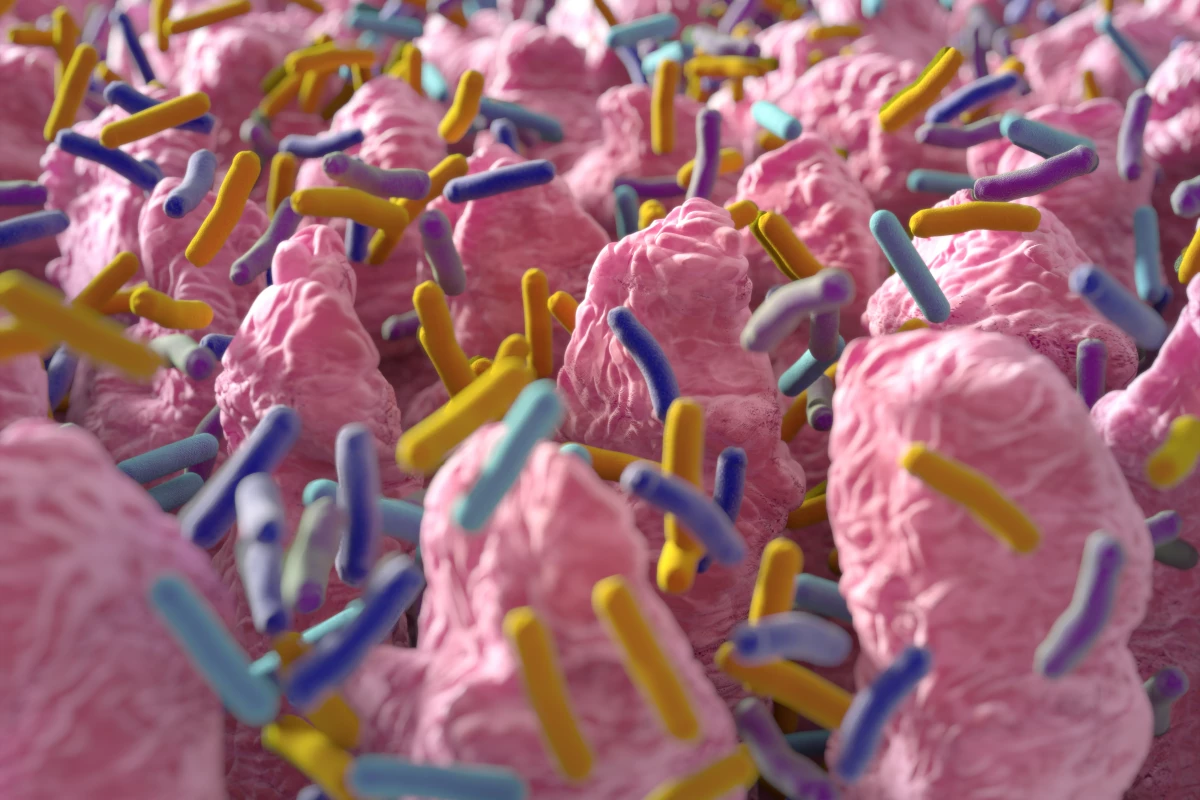Plenty of recent research has shown compelling correlations between gut microbiome alterations and mood disorders such as depression. But exactly how bacteria in the gut could be influencing depressive behaviors has been unclear. New research from a team of French scientists is shedding light on one possible causal mechanism, describing a pathway by which changes to the microbiome results in decreased activity in the hippocampus and subsequent depressive behavior.
The new research began by investigating microbiome changes in a mouse model of stress-induced depression. As well as initially examining the microbiome differences between healthy animals and animals with mood disorders, the researchers discovered those mood disorders could be transferred to the healthy animals via fecal transplants.
"Surprisingly, simply transferring the microbiota from an animal with mood disorders to an animal in good health was enough to bring about biochemical changes and confer depressive-like behaviors in the latter,” explains Pierre-Marie Lledo, joint last author on the new study.
The next step was to investigate what mechanistic pathways could explain how the gut bacteria alterations were influencing depressive behaviors. It was here the researchers discovered changes in the depressed animals’ endocannabinoid system.
The human endocannabinoid system was only discovered recently, in the early 1990s, following systematic research investigating how cannabis works in the brain. After revealing how THC, a cannabinoid found in cannabis, interacts with specific cannabinoid receptors in the brain, researchers subsequently discovered the human body naturally produces its own endogenous cannabinoids, called endocannabinoids.
Changes to endocannabinoid signaling, particularly in the hippocampus, have been linked to depression and mood disorders, and in this new study, the researchers found microbiome alterations were associated with diminished endocannabinoid signaling in the hippocampus.
Explaining this association, the new research found stress-induced changes to the gut microbiome resulted in a decrease of certain fatty acid metabolites known to be precursors to endocannabinoids. This suggests a direct mechanism by which bacteria in our gut can possibly lead to mood disorders.

“In sum, our data show that microbiota dysbiosis induced by chronic stress affects lipid metabolism and the generation of eCBs [endocannabinoids], leading to decreased signaling in the eCB system and reduced adult neurogenesis in the hippocampus,” the researchers conclude in the new study. “This might be the pathway, at least in part, that links microbiota dysbiosis to mood disorders, which in turn, may affect the composition of the gut microbiota through physiological adjustments and modulation of the immune system.”
In the final stage of the research the scientists homed in on a particular bacteria strain of the Lactobacilli genus that seemed to be especially reduced in the depressed animals. Supplementation of that particular strain was enough to increase endocannabinoid brain levels and alleviate depressive behaviors in the animals.
While this study was primarily undertaken in animal models, there is certainly enough prior evidence to be confident a similar mechanism could be occurring in humans. Lactobacillus microbiome strains have been detected in lower than normal levels in humans suffering depression, and disruptions to hippocampal endocannabinoid systems have been connected to a number of human neurological disorders.
However, the research makes no claim to suggest this newly discovered pathway is the only gut-brain mechanism influencing mood. Instead, this may be one of several ways environmental stresses can lead to depression, and hopefully future study will further unpack these gut-brain connections and lead to novel treatments for a variety of mood disorders.
The new study was published in the journal Nature Communications.
Source: Institut Pasteur




